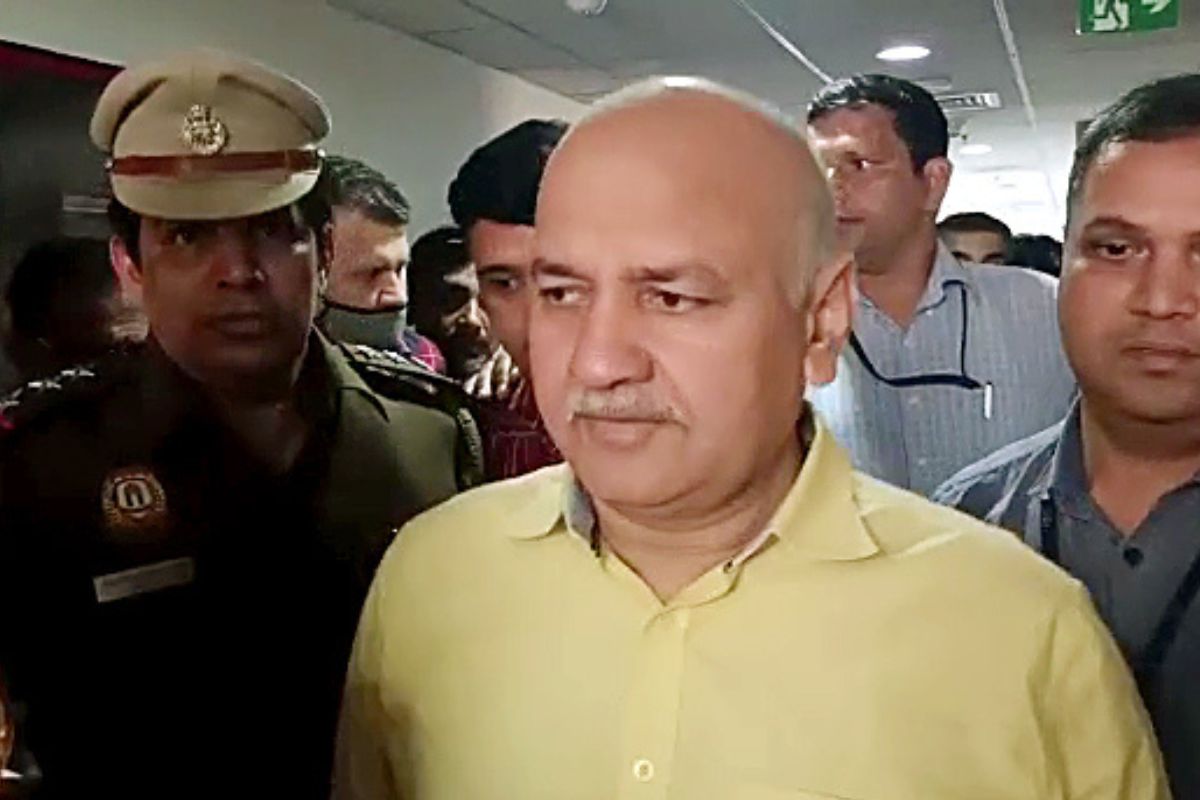In a setback to Delhi’s Deputy Chief Minister Manish Sisodia, the Supreme Court on Tuesday refused to entertain his plea challenging his arrest by CBI on Sunday (February 26) in an alleged liquor policy scam of Delhi government, asking him to explore other legal remedies including approaching Delhi High Court bail.
At the outset of the hearing today evening, Chief Justice D Y Chandrachud heading a bench also comprising Justice P S Narasimha, while airing their reluctance to hear the matter, said that the arrest by the investigating agency or such instances cannot be a basis for knocking the doors of the top court invoking Article 32 of the constitution.
Advertisement
Article 32 confers the right to directly approach the Supreme Court for the protection of fundamental rights.
The top court was reluctant to hear Sisodia’s plea when senior advocate Abhishek Manu Singhvi, appearing for him, initially mentioned it for an urgent hearing today morning. The court had said that there were other alternative remedies available to Sisodia against his arre3st by the CBI.
While refusing to grant any relief to Sisodia least it becomes a precedent for other similarly placed people to knock the doors of the top court, the bench appeared unimpressed as Singhvi said that the most of the work of Delhi government will come to a standstill since Sisodia holds 18 portfolios as a minister.
CJI Chandrachud pointed out that the Court interfered last week in Pawan Khera’s case as there was a prayer to consolidate FIRs filed in multiple states.
On Monday, a Delhi Court had remanded Sisodia to CBI’s custody till March 4. Special CBI Judge M.K. Nagpal had allowed CBI’s request after Sisodia was arrested on Sunday after an interrogation that lasted for more than eight hours.
As Singhvi referred to the cases of Arnab Goswami and Vinod Dua to say that Article 32 can be invoked for bail in exceptional circumstances. CJI Chandrachud replied that Goswami’s case had come after the High Court and that of Vinod Dua related to FIRs against a journalist making critical reports, while Sisodia’s case is one under the Prevention of Corruption Act.
Singhvi also relied on the order in Jagisha Arora case where the Court allowed bail to journalist Prashant Kanojia in a writ petition filed against a remand order.
In the present case, he argued that the remand is not at all warranted as the offence is punishable with less than seven years and there is no flight risk as he has complied with all summons.
“How can you arrest when he has appeared on all occasions? Where is the flight risk?”, he asked. Singhvi said that the remand is sought on the ground that he is not cooperating. Does cooperation mean that one should waive the right against self-incrimination, Singhvi asked.
When the CJI Chandrachud asked why can’t these arguments be raised before the Delhi High Court, Singhvi replied that the roster judge of the Delhi High Court is not holding sittings most days as he is involved with the work as UAPA Tribunal in the PFI case. However, the bench was unmoved by the submission.











